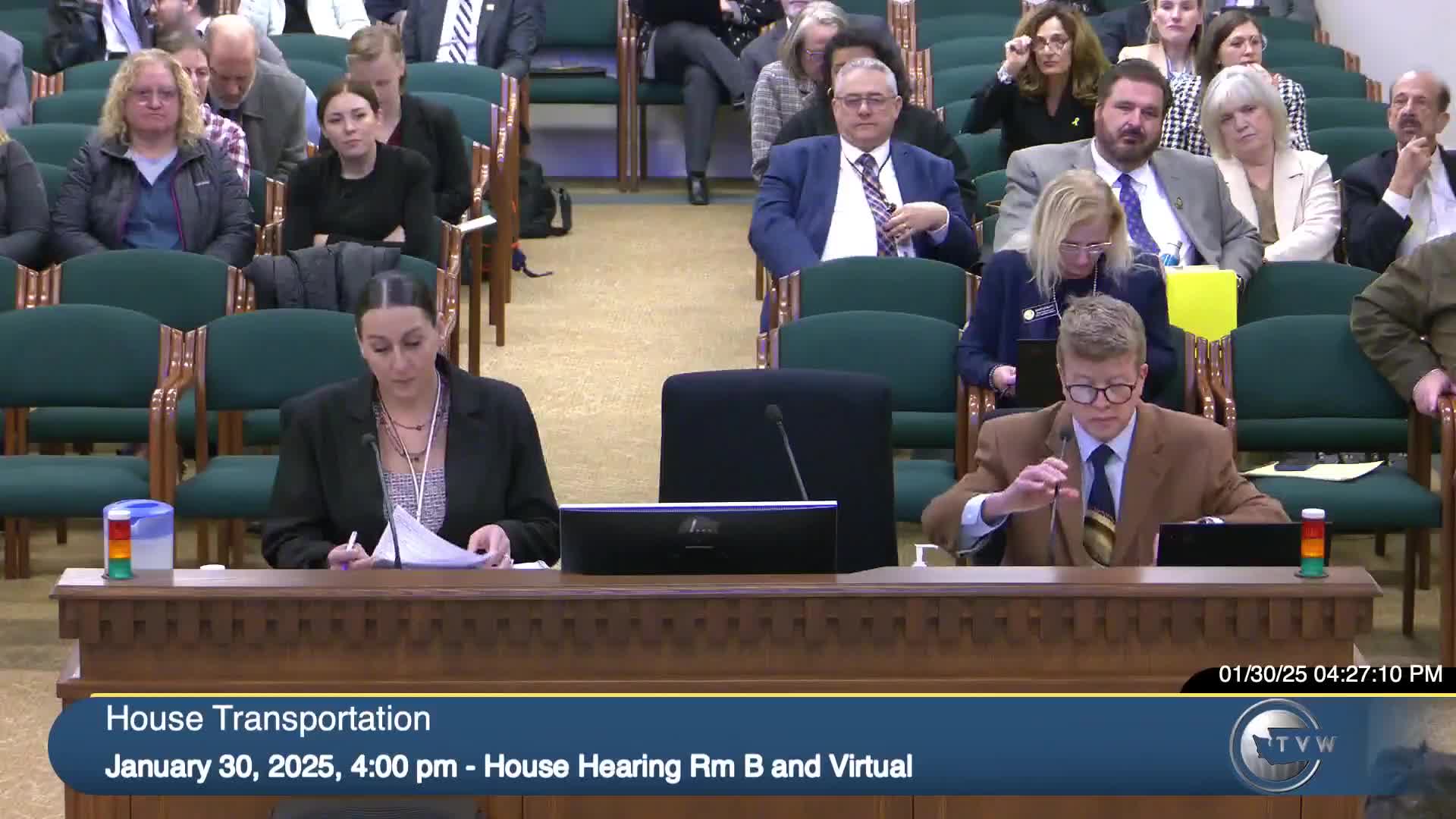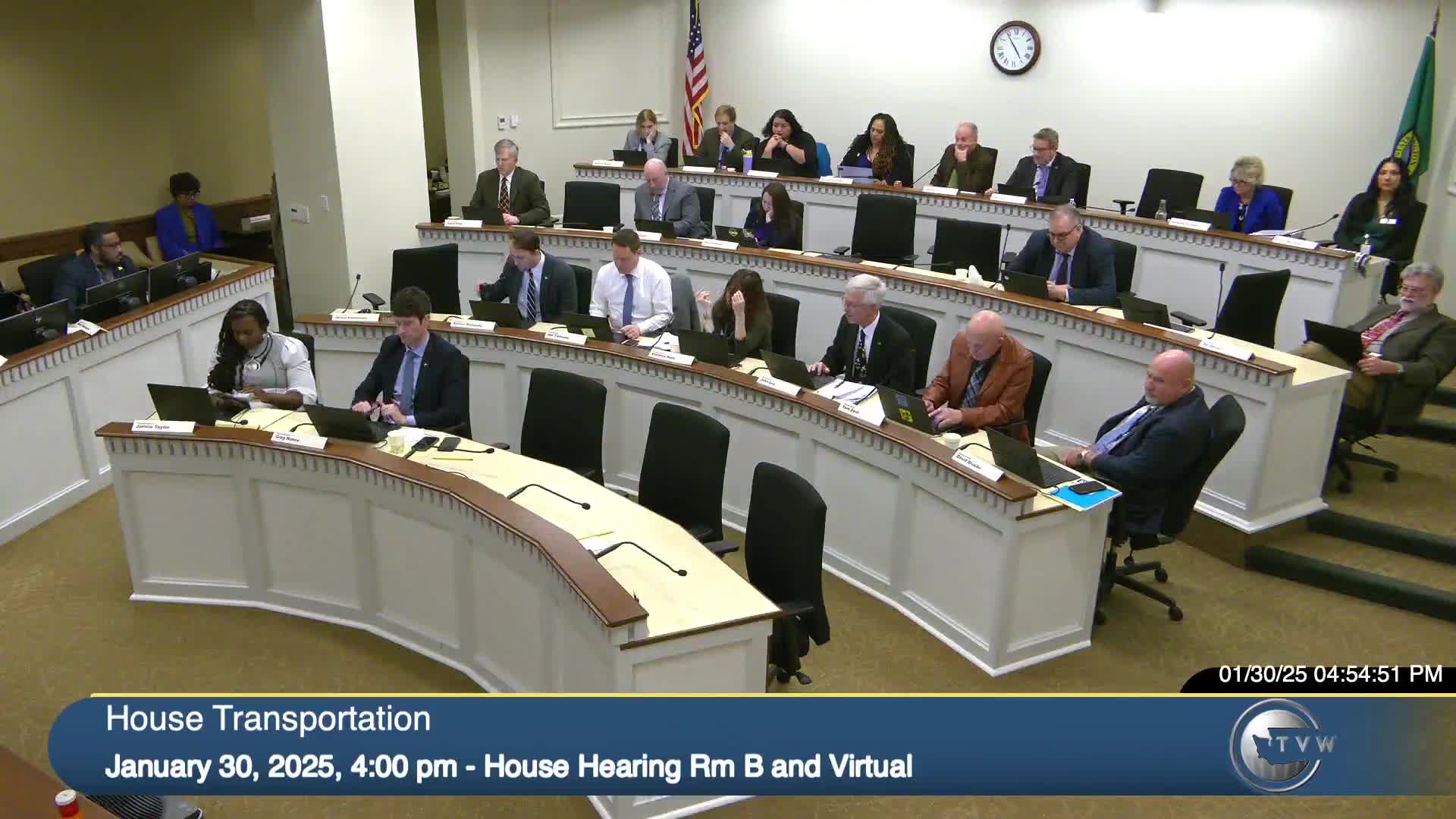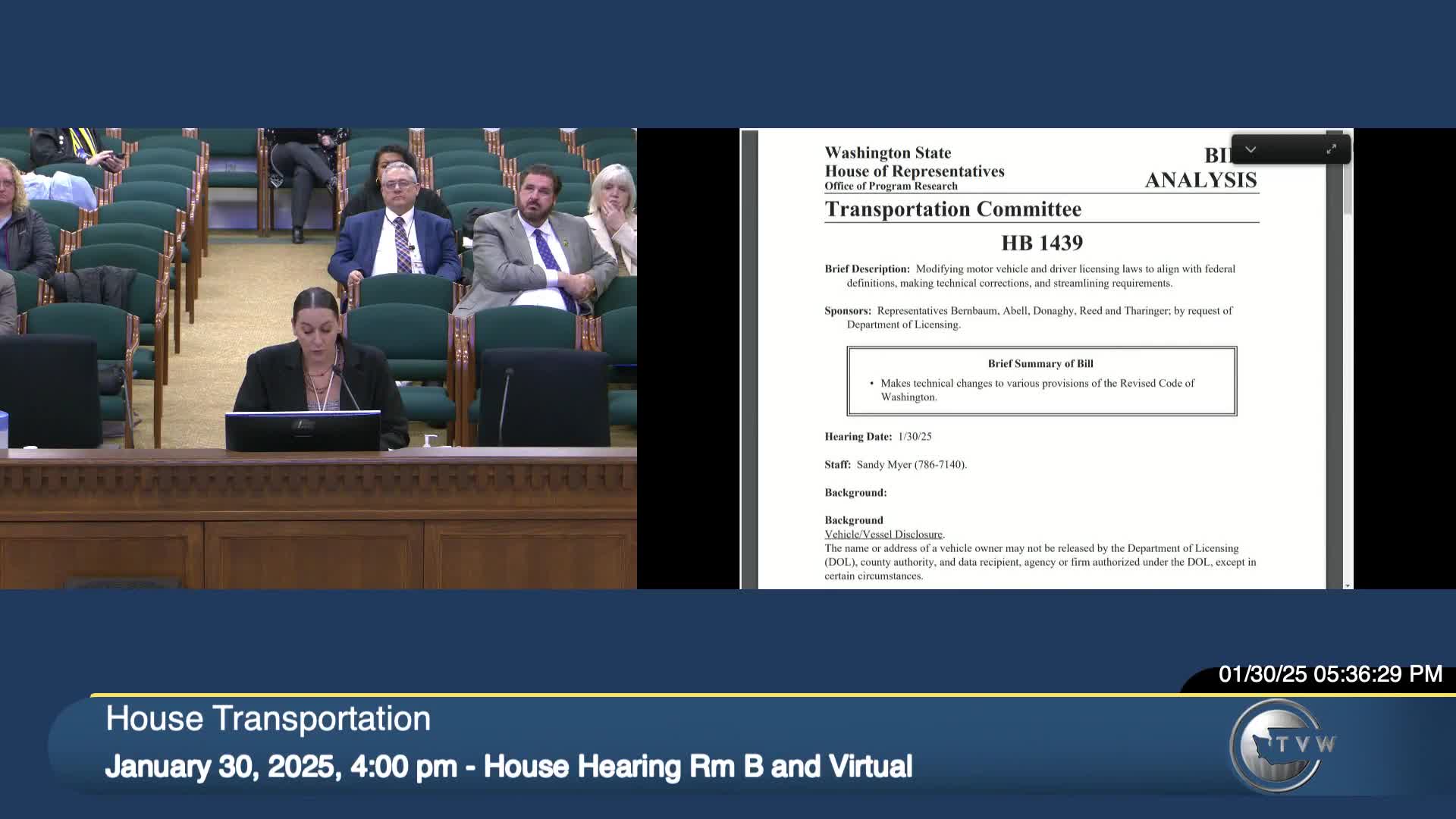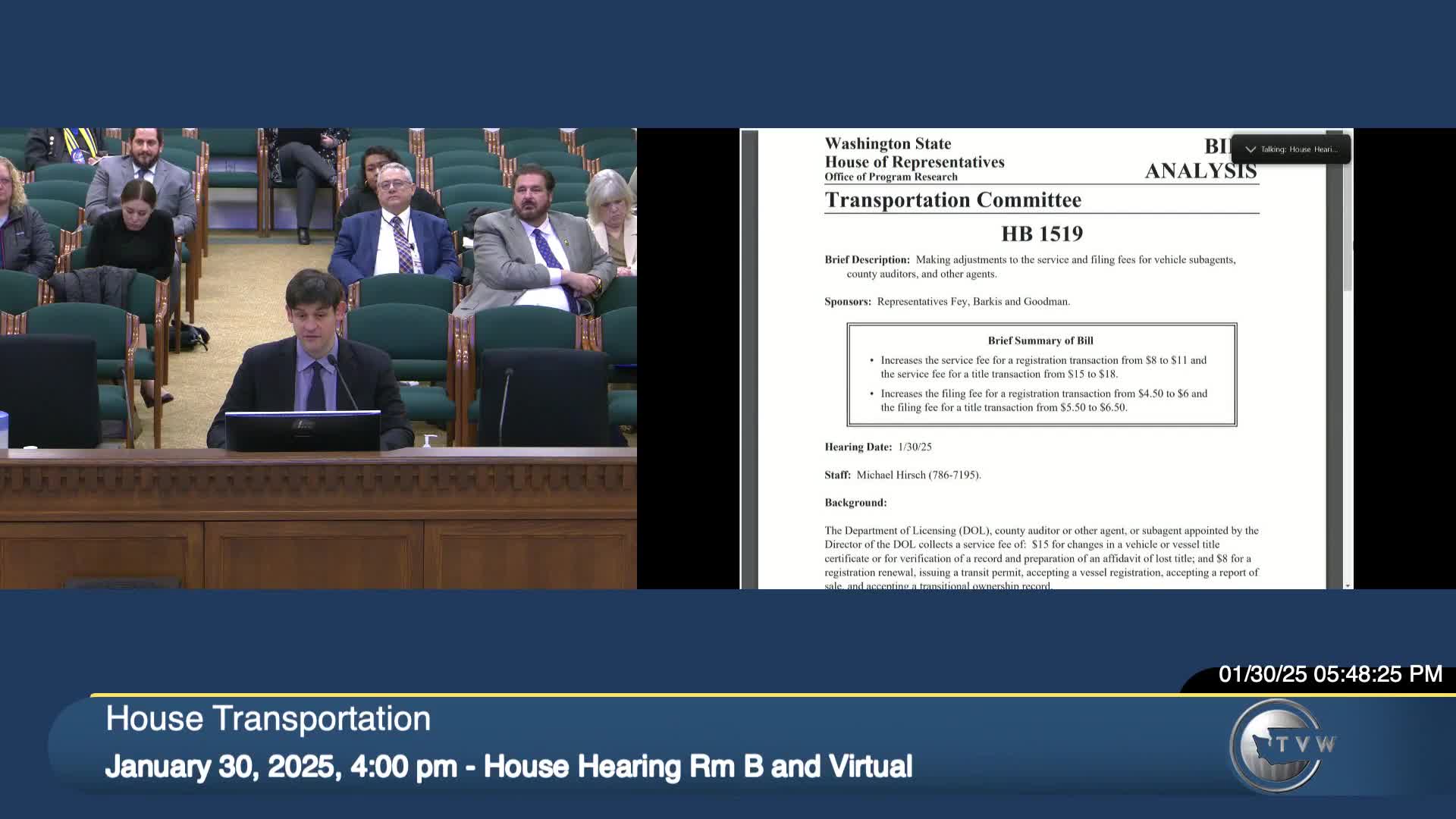Article not found
This article is no longer available. But don't worry—we've gathered other articles that discuss the same topic.

House committee hears bill to let courts require in-vehicle speed limiters for serious speeders

Committee hears bill to clarify impound procedures, protect vehicle residents from losing shelter

Committee reviews technical corrections to Department of Licensing statutes and disclosure rules

